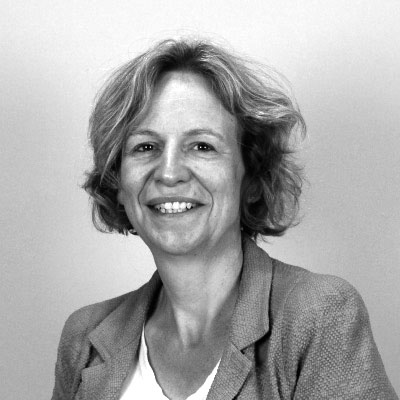Prof. dr. Karina Meijer is a haematologist at the University Medical Centre Groningen (UMCG). She is also one of the leaders of WP 9 of SYMPHONY, which researches the ethics of gene therapy for haemophilia.
Why did you choose haematology?

A lot of things that happen are simply by chance. I started studying medicine because I didn’t know what to do and enjoyed many different things. When it was time for my internships (coschappen) I thought I wanted to do something bad-ass such as psychiatry or thoracic surgery. But then a position opened up for internal medicine in Antwerp, which did not have a very good reputation. As I was sure I wasn’t going to be an internist anyway, I thought I might as well go there. And then I had three amazing months there, during which I learned to work independently and saw how internal medicine allows to go in-depth while simultaneously seeing the entire person. After that I was sold. I started looking for a PhD position, and there were two available in Groningen with professor Jan van der Meer; one in thrombosis and one in haemophilia. I asked the other PhD candidate what he preferred and since then I’m working in haemophilia. I knew absolutely nothing about the topic, but once I delved into it my enthusiasm grew bigger and bigger. So when I got the offer to train as a haematologist a couple of years later, I didn’t have to think twice.
All in all, I’d say it is important to allow new things that you can explore and enjoy to enter your life. Of course you have to plan a career for yourself, but even more than that you have to remain open to new things that can happen.
Why is SYMPHONY so important?
SYMPHONY is important because it allows us to do research over the full scope of haemophilia in the Netherlands. I think we really have to realize that it is such as unique opportunity that Marjon Cnossen has worked to receive all this funding. This has provided the opportunity to start many research lines, and because it is all part of SYMPHONY all these researchers come together. It has a lot of added value that we all have contact about the ongoing studies, and I think the PhD candidates have a huge advantage because they all started around the same time in the same field. Therefore I also really appreciate all the effort by Marjon Cnossen and Simone Reitsma to keep us connected within the consortium. In SYMPHONY we have, for instance, people working on patient-reported outcomes and on very complicated pharmacokinetics, and because we all meet and exchange thoughts, new ideas are developed.
What do you hope happens with the results of SYMPHONY?
I hope that at the end of SYMPHONY we can offer a better treatment for haemophilia and other congenital clotting factor deficiencies, and that we also have a better knowledge of what exactly is a better treatment. I hope we will have more opportunities to steer a treatment and to personalize it to the individual patient. Further, I hope that we will be able to diminish the impact of haemophilia on the lives of affected persons. We must realize there are huge differences in the care needs of persons.
How did the Symphon-ethics project originate?
We were busy defining the various work packages and I saw some issues surrounding gene transfer. We were working on the first gene transfer study, and I saw people asking questions and also not asking certain questions, that made me think we should also investigate the ethical aspects of gene therapy. For instance, some people who were interested in participating in a trial hardly paid attention to potential risks and mainly focussed on expected benefits.
Reading tip:
De filosoof, de hond en de bruiloft by Barbara Stok. This book was recommended to me by one of my PhD candidates and I think it fits our work package Symphon-ethics very well. The author Barbara Stok is a cartoonist from Groningen. The book is a cartoon that describes the story of Hipparchia, one of the first female philosophers. She was not an ethicist, but a Cynist and a Stoic. I just read the book last week and really enjoyed it!
By Lieke Baas, PhD WP09
